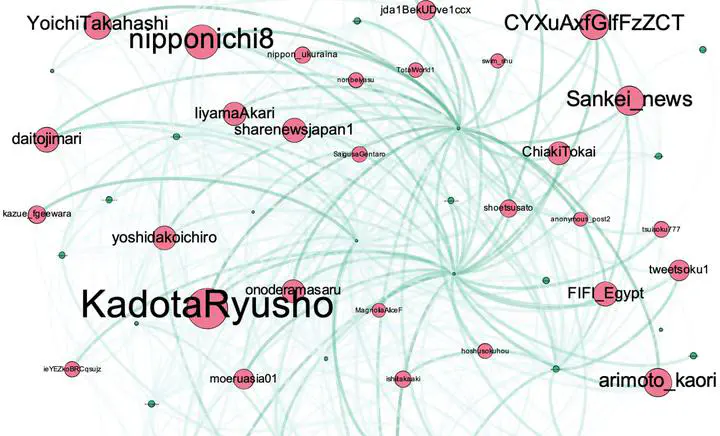Structure and Identity in an Online Conspiracy Theory Community: Real-time conspiracy narrative formation in Japan following the assassination of Abe Shinzō

Abstract
In recent years, conspiracy theory beliefs initially created and propagated by relatively small online communities have had significant and deleterious effects in several high-profile cases – not only the January 6th attack on the U.S. Capitol by adherents of conspiracy theories such as QAnon, but also violent attacks against minority groups in countries including Sri Lanka and Myanmar. This study aims to advance our understanding of the structure and identity of the groups who author and disseminate such conspiracy narratives by examining the online community that was central to spreading far-right conspiracy theories in the days immediately following the assassination of former Japanese Prime Minister Abe Shinzo in July 2022. Network analysis methods are used to identify a close-knit community of Twitter accounts which developed conspiracy narratives and adapted them to fit changing facts following the assassination. This community numbers fewer than 600 accounts, only 30 of which actively participated in writing conspiracy narratives – but tweets promoting these narratives were potentially seen by millions of users during this time period. An online ethnographic approach is then used to analyse the nature of this community, with particular focus on the information environment (or “filter bubble”) within which these accounts and their followers exist, which clarifies their worldview and offers some explanation for their motives in actively promoting conspiracy narratives.